‘The Vanishing Women’ EPs Talk About What Drew Them to Chillicothe, and What They’ll Cover in the Series Finale
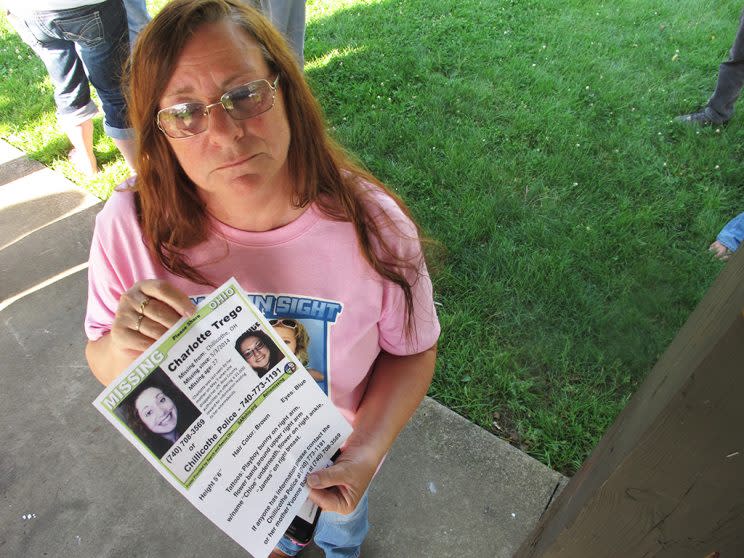
Viewers still haunted — i.e. all viewers — by The Vanishing Women, the Investigation Discovery docuseries about the unsolved mysteries of six women who went missing during a brief period in the small town of Chillicothe, Ohio, take note: The series’ sixth, and final, episode will air later this summer or in early fall, and, at least for one family, the finale will include a small, heartbreaking bit of closure.
Related: ‘The Vanishing Women’: Does a Small Ohio Town Have a Serial Killer on the Loose?
On July 15, Jason McCrary was found guilty in the shooting death of Timberly Claytor, the 38-year-old mother of five whose story was featured in the ID series. The Vanishing Women executive producers Jeanie Vink and Jennifer Anderson talked to Yahoo TV about how McCrary’s trial and sentencing will factor into the finale, about how the series had led to new clues in the cases for local police, about what drew them to the Chillicothe tragedies for the network’s first serialized documentary, and how they relied on everyone from family and friends to a local newspaper editor to help them portray each victim as “a person, and not just a headline.”
We learn right up front that these women have problems. Their families are very open in talking about that. But they’re also people who are loved, and who have people they love, who continue to have no answers about what happened to the women in several cases. That gets lost in a lot of coverage of stories like these — it feels like people can become desensitized to the sheer number of crimes like this — but this series really focuses on the details of who the women are. Is that why it has connected with so many viewers?
Jeanie Vink: Thank you, thank you very much. It’s one of the things that I’m particularly proud of. I give Jen, who is the person who’s been on the ground in Chillicothe… it’s Jen’s handling of the show and the sensitivity to the families and the victims. That was the intention, to make sure that people understood that these were troubled women on some level, but they have families who love them. They have friends who love them. This is a really tragic story that we all should care about.
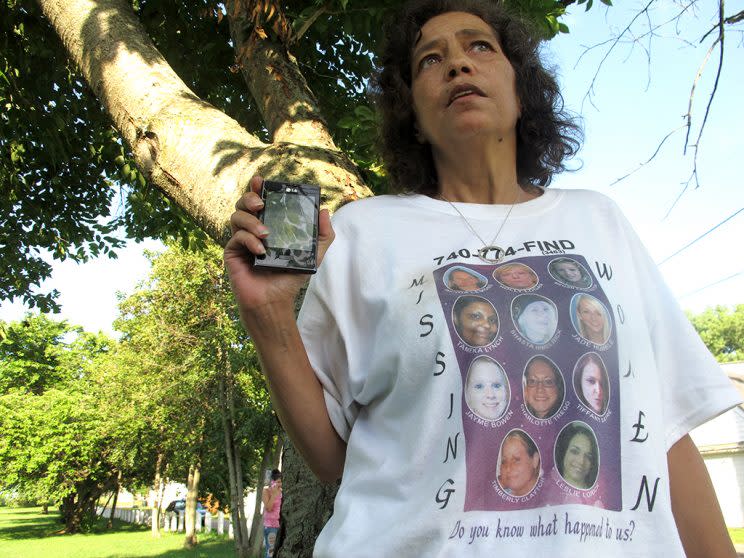
It’s inherently a very compelling story, but what made you see it as a story that would be well served by a series of this scope?
Vink: For ID, this is our first serialized docuseries, and that in and of itself is exciting for us. The fact that six women went missing in such a relatively short period of time in a small community felt like it warranted a really full exploration. We wanted to go into each victim’s story and the circumstances. It isn’t something that could have been done properly in an hour or two. It made sense for us to try it on a serialized level and make sure people appreciated the scope of the series.
Jennifer Anderson: There are so many themes we all felt were really important to introduce, which made the story even bigger. Of course, one of those themes is delving into being honest about addiction and how it affects families. How it begins. Which is something that is happening all across our country and is an important story to tell. Kudos to ID for really taking the leap into that realm and agreeing to tell that part of the story as well, to make it a larger thematic series.
The drug issues, how that ties into so many of these stories and what an impact it has in small towns like Chillicothe, is one of the many interesting sidebars in The Vanishing Women.
Vink: I think that hopefully the success of the series speaks to this. It may be a time when this country is ready to talk about what’s happened here, because it started with the whole pill mill phenomenon and a lot of people getting addicted to opiates that way, and then turning to heroin. We felt like the timing was right and that our viewers would be receptive and sympathetic.
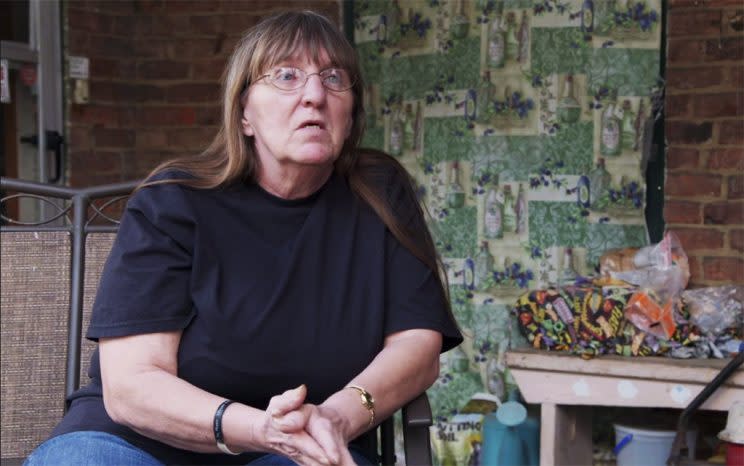
How do you jump into a series like this? Do you have a lot of initial contact with local law enforcement, local media, the families? Where do you even start?
Anderson: Yes, it’s a lot of initial outreach to law enforcement, to families. We also worked with the local newspaper [The Chillicothe Gazette]. There were a lot of preliminary conversations with all of these parties. First of all, we have to gain the trust of the people there in Chillicothe. We worked really hard to do that. They definitely, across the board, felt that when the national media came in and got ahold of this stor … they were a little bit reticent about what our intentions were. We took several trips to Chillicothe without any cameras before the series was even greenlit, just to sit down face-to-face with everybody there who played a part in this story. To talk to them and talk through what kind of story we wanted to tell. Through multiple conversations and multiple face-to-face meetings, we slowly gained their trust, and it really wasn’t until they said, especially law enforcement, “Yes we would like to move forward, and we would like to move forward with Investigation Discovery to tell this story,” that the project really got off the ground.
Mike Throne, the editor at The Gazette, is a great part of the whole series. He’s someone you know lives in the town, he’s raising his kids in the community. He clearly cares about the community in general, and how it’s perceived. As you said, it’s on a national level now. How did that come about, that he became, in a way, the spokesperson for a lot of the story?
Anderson: Mike is just a wonderful person and of course that comes across. He’s also able to speak really clearly from a community perspective about these events and how they affected Chillicothe as a town, as a community. As we were putting these shows together with no narrator, we really needed that clear voice to glue things together. He definitely rose to the forefront of in that role.
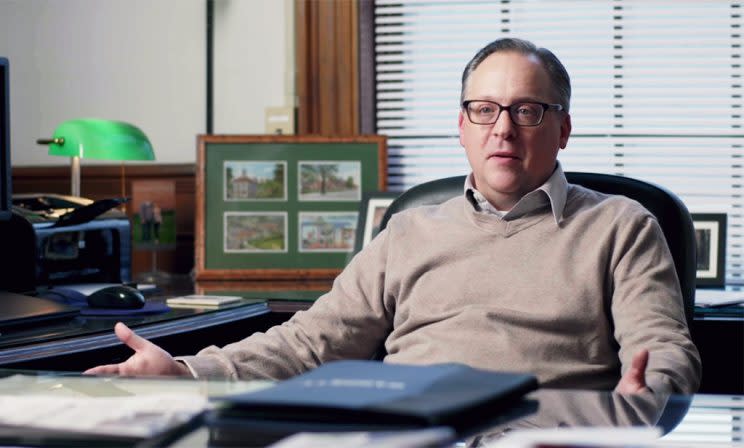
How important was it to have the local media’s sign off, agree to work with you on this?
Anderson: I think it was very crucial to the success of this. It’s a very close-knit town. It’s a very engaged community. They’re very engaged on a local level. Being able to work with those voices at The Gazette and have them spend as much time with us as they did, and speak honestly and openly… we would be missing a critical part of the story if we did not have their participation. Then of course, being able to use headlines from the relevant stories added a lot.
What was the initial vibe of the reaction from the community when they found out about the series? News must have spread quickly that a TV series was going to film there.
Anderson: Yes, everybody knew who we were. In any small town, when you come from out of town, there’s a level of “Should we trust these people? What are their motives?” It took us being there, people getting used to our faces, our cameras being around. I would say that one thing that really struck me was the honesty of the people who were our interview subjects. A lot of times, you put a camera in somebody’s face, and they clam up and get nervous. I really didn’t see much of that at all. People were not frightened of the camera. They really wanted to say what they wanted to say. They said it honestly and openly. People wept in front of us. The emotions were pretty raw. That was not only really compelling, but it really, as a producer, it made me feel like we were doing something right.
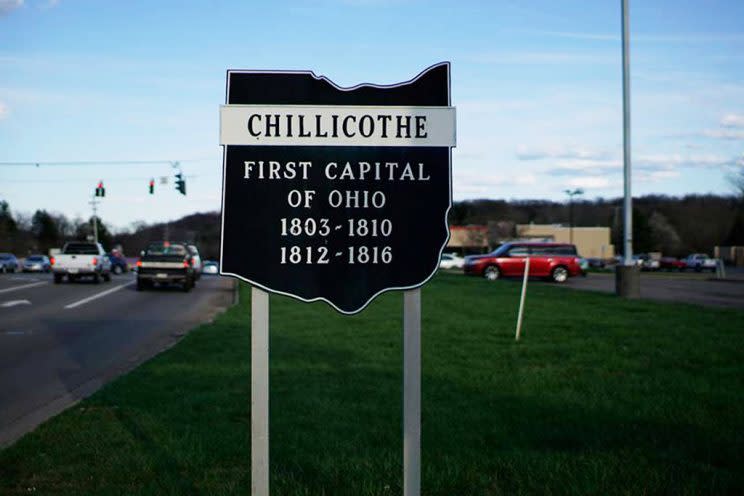
Vink: I was just gonna add that I think this is a community that wants their story told, but wanted it told in a sensitive manner. Obviously, ultimately, we really hope that this series does generate new leads and helps law enforcement. On a lot of levels, I think it was cathartic for the families but they’re also looking for answers. Given the sensitivity of the subject matter, which I hope came across in the series as well, it was hard for law enforcement, because with the drug issues in the community, people are often reluctant to talk. In some ways, I think they were more comfortable talking to Jen and her crew, perhaps. I think law enforcement would back that up, and hopefully it’s positive thing for them. I think it ended up feeling very overall positive to the entire community.
Jen, did you feel like you got a crash course in getting to know the town itself, which is also spotlighted in the series, and, I think, favorably. It looks like a nice, friendly town.
Anderson: Well, it is a really beautiful little town, in the foothills of the Appalachians. The foothills are just gorgeous. Being there on that little main street and seeing so many great little Mom and Pop shops, it had a bit of an artsy vibe. It wasn’t what I expected, just having read articles about the place. We definitely did want to show that it is an all-American, quintessential, very charming town with an engaged population. I don’t know about a crash course, I think it just evolved naturally from having spent the time that I did spend there
You returned to town earlier this month for the trial of Jason McCrary. What was that experience like? Everything happened so quickly.
Anderson: Yeah, I was kind of giving Jeanie a running text message account of things as they were happening. I don’t want to give too much away for people who will be watching the show and haven’t been following the trial. It was far more interesting than I anticipated. I definitely hope that I can make that come across in the final episode.
I’m guessing that will be much of the focus of the final episode then?
Anderson: It’ll be quite a bit, yes.

Will you cover the sentencing in August as well, for the final episode of The Vanishing Women?
Vink: There’s no question we will reveal the sentencing in Episode 6. Whether it’s actual coverage… quite honestly, the sentencing hearing itself is not necessarily the most compelling television. You want to give people… you want to finish the story, no question, but things can happen. Like I said, who knows if new leads or some other developments start happening, we will do our best to cover it. For the time being, we’ll deliver the sentencing information, but we may or may not cover it.
Have there been specific leads that the local law officials have followed that are a result of the series, people seeing the cases on a national level?
Anderson: Yes, [local police] have come out and said that. They hold all of that information very close to their chest, because these are all active, open investigations. That’s been a challenge from the outset of this. They can only tell you so much, because they don’t want to jeopardize their investigations in any way. We don’t know anything about what those leads entail.
Jen, since you were in Chillicothe recently, after the trial, what do you sense is the feeling in the town, in terms of, do they feel any safer that, at least, there’s been a concrete result, consequence, in one of the cases?
Anderson: I think there’s no question that they do feel like a bad guy has been taken of the streets. At least for one family, there is definitely a sense of closure. Well, I don’t know if closure is the right word, because of course it won’t bring their daughter back, but that justice was served. There are still a lot of questions. Law enforcement has been very open and adamant about the fact that they do not think the defendant in this particular murder case was connected at all to the other women. That’s not to say he doesn’t have information. There are still a lot of questions. I don’t think that the community’s put this to bed at all, but for one family, there’s a bit of closure.
Did you become close with the families and with the local law enforcement officers while you were filming?
Anderson: I think, with the families, I don’t know if close would be the right word, but definitely there’s a mutual respect there. I feel so deeply for them, just being with them in person, hearing their stories. Hearing what they’ve gone through. So many of us can’t even fathom the devastation and the heartbreak and the not knowing. My heart just constantly goes out to them.
Law enforcement, I definitely think that we did have good relationships with them, and the feedback that I’ve gotten from the police department there has been very positive. They’ve been very pleased with the series, how it’s unfolded, and the story’s that’s been told. That feels good.
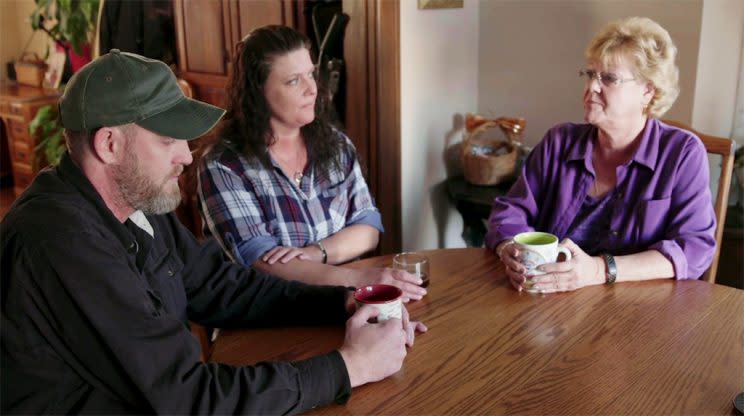
Many of the family members break your heart. Tiffany Sayre’s aunt and her grandmother and her father… it was crushing to watch them. They were so honest and so open about everything in her life, that she had experienced a lot of tragic things, that she had problems with drugs … it’s no small thing that they’re being that open and honest with you. That must make you feel a lot of responsibility as well, to tell their stories.
Anderson: Oh, absolutely. Yeah, I’ll say that across the board. Wanda Lemons’s mother, Diana Willett, as well. She spent a lot of time with us and was just so open. Like I said, you put that camera in somebody’s face and you don’t necessarily expect to have that level of emotion. The things that they were sharing with us… You’re right, that’s a really good way to put it, there’s a sense of responsibility to tell those stories to the best of our ability and really bring their loved ones to life, to make them into a person, and not just a headline.
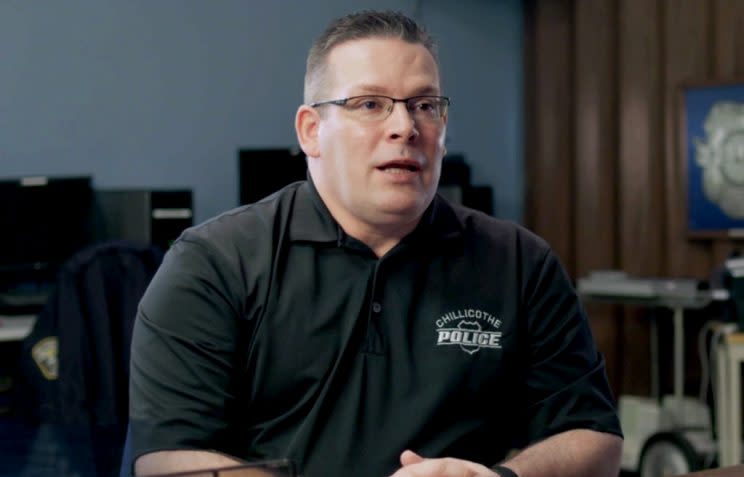
Diana… she is shown really putting her faith in keeping her relationship going with the law enforcement officers. She trusts them to continue searching, and to continue trying to find answers. With everything that’s going on in the country right now, that was was nice to see. These people all live together and they know each other and they’ve grown up together. It probably makes for a weird situation when they have to ask questions about each other in these cases that are uncomfortable, but it was interesting to see that she’s put her trust in them, and that they take that seriously.
Anderson: Yep, that was a scene with Detective Bud Lytle, who spent a really really large amount of time with us, which I really appreciate. He’s someone who cares deeply about his community and the people in it. He has that personal connection with Wanda, Diana’s daughter. They attended the same church. He was a youth pastor, and Wanda worked with him. He’s someone who sees what’s happening in the community and is out there making sure that people know he’s out there. He’s working hard, as hard as he can, for answers for these families that he cares about, too.
The Vanishing Women, Episodes 1-5, are streaming at InvestigationDiscovery.com.


